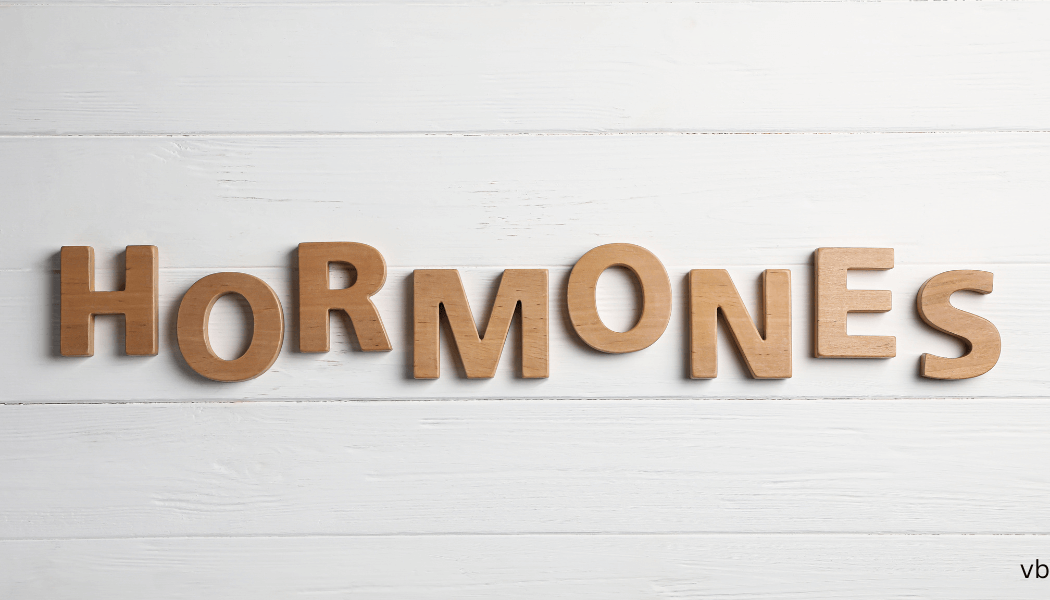Pain During Intimacy: Understanding Why Sex Hurts After Menopause

Introduction
Picture this: you and your partner are ready to have a romantic and intimate night together. But as soon as things start heating up, you feel a sharp pain that puts a halt to the passion. Sound familiar? If you're experiencing pain during intimacy after menopause, you're not alone.
Many women go through this frustrating and uncomfortable experience, but not many talk about it openly. That ends today. In this article, we'll dive into the topic of why sex can be painful after menopause and help you understand what's really going on with your body.
Whether you're going through menopause yourself or you're supporting a partner who is, it's important to have the knowledge and tools to navigate this new chapter of your sexual health. So, let's get started and shed some light on this often misunderstood topic.
Vaginal Dryness and Atrophy: Common Causes of Painful Sex After Menopause
Experiencing pain during intimacy after menopause is a common issue that many women face. One of the main reasons why sex can be painful during this stage of life is due to vaginal dryness and atrophy. As women age, their estrogen levels naturally decrease, leading to a thinner and less lubricated vaginal lining. This lack of moisture can cause friction and discomfort during sexual activity, making it painful or even impossible to fully enjoy the experience. Additionally, vaginal atrophy, which refers to the thinning and shrinking of the tissues surrounding the vagina, can further contribute to discomfort and pain during sex. It's important for women experiencing these symptoms to know that they are not alone and that there are solutions available to help alleviate their discomfort and improve their sexual well-being.
Low Estrogen Levels Lead to Changes in Vaginal Tissue
During menopause, the body goes through significant changes, including a drop in estrogen levels. Estrogen plays a crucial role in maintaining the health and elasticity of vaginal tissue. When estrogen levels decrease, the vaginal lining becomes thinner, drier, and less elastic. This can result in discomfort and pain during intercourse. The lack of lubrication makes penetration more difficult and can cause friction, leading to irritation and soreness. Additionally, the decreased blood flow to the pelvic area during menopause can further contribute to discomfort. It's important to understand these physical changes so you can seek appropriate treatment options to improve your sexual experience and overall well-being.
Treatments for Vaginal Dryness to Reduce Pain During Sex
If you're experiencing pain during sex after menopause, there are several treatments available to help alleviate vaginal dryness and reduce discomfort. One common treatment is the use of water-based lubricants or moisturizers, which can provide temporary relief by adding moisture to the vaginal area. Another option is hormone replacement therapy (HRT), which can help restore estrogen levels and improve vaginal health. HRT may be administered through creams, gels, or tablets, and can often provide long-term relief from vaginal dryness. Additionally, vaginal estrogen therapy specifically targets the vaginal area and can be applied in the form of creams, tablets, or rings. This therapy helps to rebuild the tissue in the vagina and increase lubrication. It's important to consult with your healthcare provider to determine which treatment option is best for you based on your individual symptoms and medical history. Remember, it's normal for sex to become more uncomfortable after menopause, but there are solutions available to help enhance your comfort and pleasure during intimate moments.
Other Menopause-Related Changes That Contribute to Painful Sex
Sexual pain after menopause can be attributed to various physiological changes that occur in the body during this stage of life. One of the main reasons why sex can be painful after menopause is due to a decrease in estrogen levels. Estrogen plays a crucial role in maintaining the health and elasticity of the vaginal tissues. As estrogen levels decline, the vaginal tissues may become thinner, drier, and less lubricated, leading to discomfort and pain during intercourse. Additionally, reduced blood flow to the genital area can also contribute to vaginal dryness and decreased arousal, further exacerbating the pain. Another factor that can contribute to painful sex after menopause is the loss of muscle tone in the pelvic floor muscles. The pelvic floor muscles, which support the pelvic organs, can weaken and become less flexible with age, leading to discomfort during penetration. It is important to note that these changes are normal and common during menopause, but that doesn't mean that women have to suffer in silence. There are various treatment options available, such as hormone replacement therapy or vaginal moisturizers, that can help alleviate the symptoms and improve sexual well-being.
Medical Conditions That Also Cause Pain During Sex After Menopause
Sex can become painful after menopause due to various medical conditions that affect the vaginal area. One common condition is vaginal atrophy, which occurs when the vaginal walls become thin, dry, and less elastic due to decreased estrogen levels. This can result in irritation, inflammation, and discomfort during intercourse. Another condition is vulvodynia, which is characterized by chronic pain and discomfort in the vulva. Vulvodynia can make sexual intercourse extremely painful and can be caused by a variety of factors including nerve damage, hormonal changes, and infections. Additionally, conditions such as endometriosis, pelvic inflammatory disease, and urinary tract infections can also contribute to pain during sex after menopause. It is important to consult with a healthcare professional to determine the underlying cause of the pain and to explore appropriate treatment options.
Tips to Help Relieve Pain During Sex After Menopause
If you're experiencing pain during sex after menopause, there are several tips that can help relieve discomfort and make intimacy more enjoyable once again.
### Communicate with Your Partner
Open and honest communication with your partner is essential. Let them know about your discomfort and work together to find positions or activities that are more comfortable for you. It's important to create a safe and understanding environment where you can openly discuss your needs and concerns.
### Use Lubricants
Vaginal dryness is a common symptom of menopause and can contribute to pain during intercourse. Using a water-based lubricant can help reduce friction and discomfort. It's important to choose a lubricant that is specifically designed for intimate use and does not contain any irritants or allergens. One of the best natural lubricants that will not only lubricate but it also helps with the pH imbalance that occurs during intercourse is V-Blissful Soothing Solution, just spray the pain away!
### Practice Relaxation Techniques
Relaxation techniques such as deep breathing, meditation, or taking a warm bath before intimacy can help reduce tension and anxiety, making it easier to relax and enjoy sexual activity. Taking your time and focusing on pleasure rather than performance can also help alleviate pain and increase pleasure.
### Consider Hormone Replacement Therapy
Hormone replacement therapy (HRT) can help relieve vaginal dryness and improve overall sexual function. Talk to your healthcare provider about the potential benefits and risks of HRT and whether it may be a suitable option for you.
### Explore Non-Penetrative Intimacy
Remember that intimacy is not limited to penetrative sex. Exploring other forms of sexual activity, such as oral sex, manual stimulation, or using sex toys, can provide pleasure without causing pain. It's important to find what works best for you and your partner and to focus on pleasure and connection rather than solely on intercourse.
By following these tips and seeking support from your healthcare provider, you can work towards relieving pain during sex after menopause and reclaiming a fulfilling and enjoyable intimate life.
Conclusion
In conclusion, experiencing pain during intimacy after menopause is a common issue that many women face. It's important to understand that this is not something to be ashamed of or to simply endure silently. There are various factors that contribute to painful sex after menopause, including hormonal changes, vaginal dryness, and thinning of the vaginal walls.
The good news is that there are solutions available to help alleviate this discomfort. From over-the-counter lubricants and moisturizers to prescription medications, there are options to address vaginal dryness and improve the overall comfort during sexual activity.
It's also crucial to have open and honest communication with your partner and healthcare provider about your concerns and experiences. They can provide guidance, support, and recommend appropriate treatments or therapies.
Remember, you are not alone in this journey, and seeking help is a sign of strength. With the right information, support, and treatment, you can continue to enjoy a fulfilling and pleasurable sex life during and after menopause.
FYI: V-Blissful Soothing Solution is a hidden secret when it comes to intercourse after menopause...using V-Blissful Soothing Solution before, during and after, is a game changer, it will help it feel less painful, per our customers.


